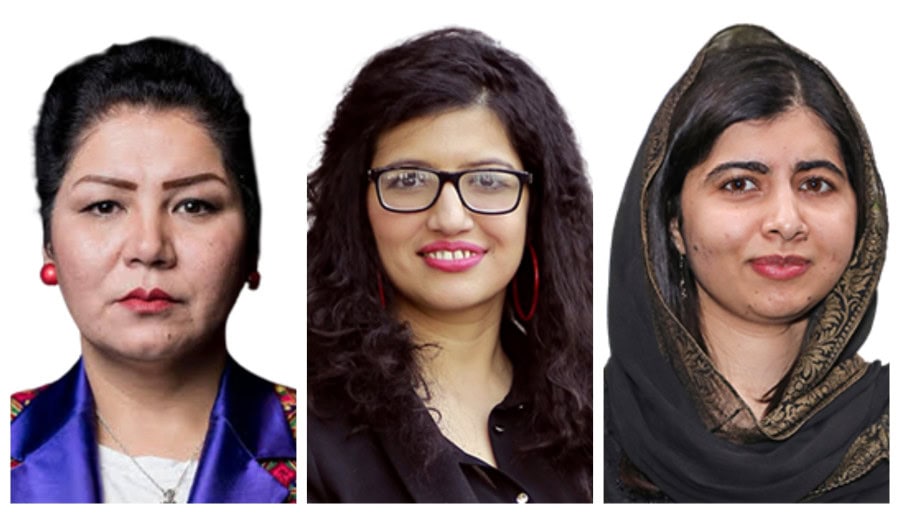ISLAMABAD – The British Broadcasting Corporation (BBC) Tuesday unveiled its list of 100 inspiring and influential women from around the world for 2021.
Three Pakistani women have secured a place in the prestigious list. They include Disability leader Abia Akram, youngest-ever Nobel Peace Prize laureate Malala Yousafzai, and Mother Camp’s founder Laila Haidari.
“This year 100 Women is highlighting those who are hitting “reset” – women playing their part to reinvent our society, our culture and our world. Among them are Malala Yousafzai, the youngest ever Nobel Peace Prize laureate, Samoa’s first female prime minister Fiamē Naomi Mata’afa, Professor Heidi J Larson, who heads The Vaccine Confidence Project, and acclaimed author Chimamanda Ngozi Adichie,” BBC said.
Abia Akram
An activist in the disability movement since 1997, when as a student managing her own disability she started the Special Talent Exchange Program (Step).
She is the first woman from Pakistan to be nominated co-ordinator for the Commonwealth Young Disabled People’s Forum. Akram is the founder of the National Forum of Women with Disabilities and has campaigned for the implementation of the UN Convention on the Rights of Persons with Disabilities and Inclusive Development.
Malala Yousafzai
The youngest ever Nobel Peace Prize laureate, Malala Yousafzai is a Pakistani girls’ education activist and UN messenger of peace. She has spoken up for the right of young women to an education since she was 11.
Her activism began with blogs for the BBC about living under Taliban rule in Pakistan and the ban on girls attending school. In October 2012, a gunman boarded her bus, looking for her, and shot her in the head.
Following her recovery, she has continued her work as co-founder of the non-profit Malala Fund, aiming to build a world where every girl can learn and lead without fear.
Laila Haideri
With Kabul’s drug rehabilitation centre, Mother Camp, Laila Haidari has helped nearly 6,400 Afghans since 2010, despite taboos concerning drug users. She established the camp using her own savings and financed it by opening a restaurant, run by recovering addicts, which had to close after the fall of Kabul.
Haidari’s family is originally from Bamyan but she was born a refugee in Pakistan. A former child bride, married at 12, she is a vocal advocate of women’s rights.
She features in the acclaimed documentary Laila at the Bridge (2018), about her struggles to keep her centre open despite threats and opposition.










